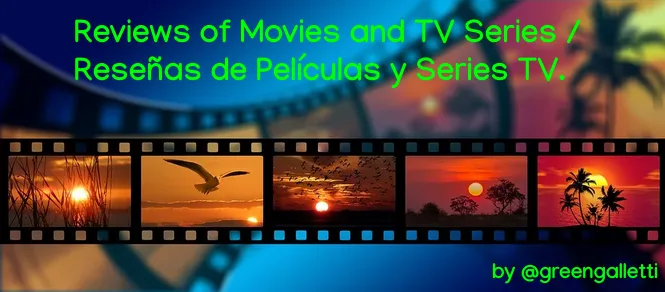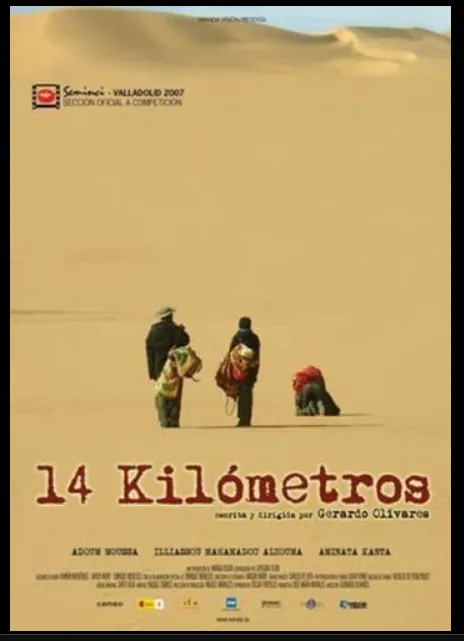
Sometimes combining a documentary with a cinematographic story is not an easy task. However Gerardo Olivares, the Spanish director, tireless traveler, is a true specialist in this.
Celebrated productions such as El Faro de las Orcas (2016) filmed in the Valdés Peninsula in Argentine Patagonia; Entrelobos (2010) based on the true story of Marcos Rodríguez Pantoja and filmed in the Sierra de Cardeña y Montoro Natural Park in Andalusia; Hermanos del viento (2015) narrated as a documentary about the eagles in the Alps and 4 cans (2019) a journey from Spain to Mali through the desert, are proof of this.
A veces combinar un documental con un relato cinematográfico no es una trea fácil. Sin embargo Gerardo Olivares, el director español, viajero infatigable, es un verdadero especialista en esto.
Producciones celebradas como El Faro de las Orcas (2016) filmada en la Península de Valdés en la patagonia argentina; Entrelobos (2010) basada en la historia real de Marcos Rodríguez Pantoja y filmada en El Parque Natural Sierra de Cardeña y Montoro en Andalucía; Hermanos del viento (2015) narrada como documental sobre las águilas en Los Alpes y 4 latas (2019) una travesía desde España hasta Malí a través del desierto, son una prueba acabada de ello.

Today I am going to tell you about 14 kilometers a film that deals with the problem of African refugees and their journey through a thousand dangers to reach the Spanish border.
Those refugees who must leave their country for economic or personal reasons, or directly because of a political persecution that threatens their own lives.
14 Kilometers is a film that will help you understand the flight and the drama of refugees, people who in their countries of origin must suffer a real social discrimination, where children and women, for example, do not have the same rights as men. Where children do not have the right to an education and must work from an early age.
And women do not have the right to a job either, because they have to take care of the house and the children. It is as simple as that. And so cruel and tragic.
These are just some of the reasons that drive these people to emigrate. To seek better horizons. Trying to integrate in societies that do not always accept them.
A journey that lasts only 14 kilometers but that, nevertheless, becomes (almost) endless. With beautiful images of the African desert as a backdrop to this tragedy.
As expressed by the director himself, Gerardo Olivares, "this film wants to be a tribute to those who succeeded and those who failed, to those who live and those who died in the effort".
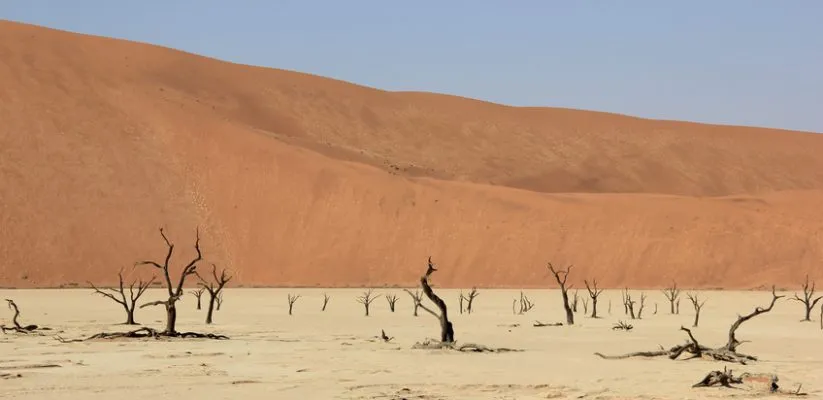
Hoy les voy a hablar de 14 kilómetros un film que trata el problema de los refugiados africanos y su viaje a través de mil peligros para llevar a la frontera española.
Aquellos refugiados que deben dejar su país por motivos económicos, personales o directamente por una persecución política que atenta contra sus propias vidas.
14 Kilómetros es una película que te ayudará a entender la huida y el drama de los refugiados, personas que en sus países de origen deben sufrir una verdadera y propia discriminació social, donde los niños y mujeres por ejemplo, no tienen los mismos derechos que los hombres.
Donde los niños no tienen derecho a una educación y deben trabajar desde pequeños. Y las mjujeres tampoco tienen derecho a un empleo pues deben cuidar la casa y los hijos. Asi de simple. Y así de cruel y trágico.
Son solo algunos de los motivos que impulsan a estas personas a emigrar. A buscar horizontes mejores. Tratando de integrarse en sociedades que no siempre los aceptan.
Un viaje que dura solo 14 kilómetros pero que, sin embargo, se hace (casi) interminable. Con hermosas imágenes del desierto africano como fondo a esta tragedia.
Como lo ha expresado el mismo director, Gerardo Olivares, "esta película quiere ser un homenaje a los que triunfaron y a los que fracasaron, a los que viven y a los que murieron en el empeño.".

Adoum Moussa: Buba Biru
Aminata Kanta: Violet
Mahamadou Alzouma: Mukela Biru

Violet (played by Aminata Kanta) is a young girl from Mali who is forced to flee her home when she learns that her parents have combined a marriage of convenience (very common in many African countries) with an old man who, among other things, abused her when she was a child.
This produces in her a sense of horror and rejection that she decides to abandon what she loves most in the world, her family, in order not to submit to the will of this union.
Her story is mixed during the journey to the Spanish border with that of Buba and Mukela, two Nigerian brothers, who decide to travel to Europe in search of a better life.
One of them has the ambition to become a world soccer star.
During the journey through the desert the three of them get involved in countless dangers and Buba loses his brother to dehydration and the sun. They save their lives thanks to being rescued by a Tuareg tribe.
From there they have only one, but enormous obstacle left: to overcome the border control in the middle of the desert, where there are no escape routes. They must cross this barrier to be able to access the Strait of Gibraltar and from there have a free way to the longed-for freedom.
The photography is prodigious, the framing and the evocative shots of the desert are simply dazzling.
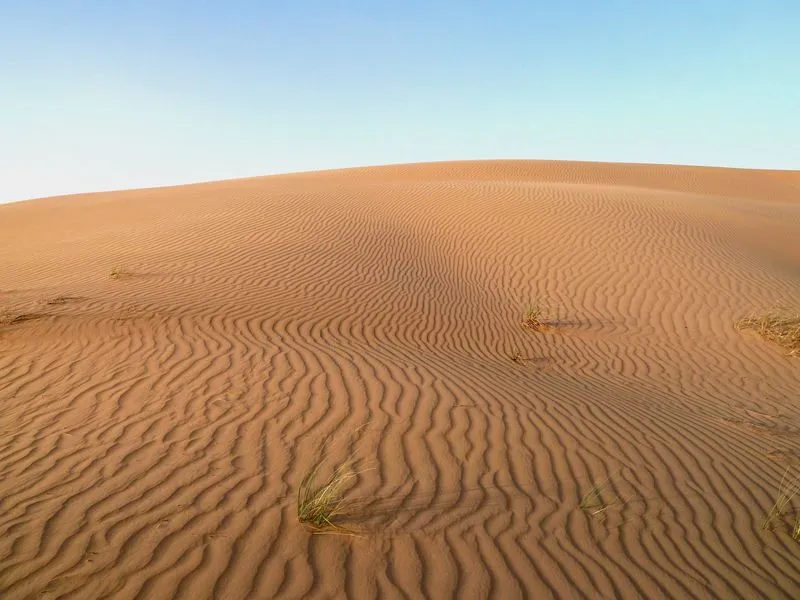
Violeta (interpretada por Aminata Kanta) es una joven de Malí que se ve obligada a huir de su casa natal al enterarse que sus padres han combinado un matrimonio de convenciencia, muy usual en muchos países de Africa) con un anciano que, entre otras cosas, abusaba de ella cuando era niña.
Esto le produce una sensación de horror y rechazo que decide abandonar lo que máa ama en el mundo, su familia, con tal de no someterse a la voluntad de concretar esa unión.
Su historia se mezcla durnte la travesía rumbo a la frontera española con la de Buba y Mukela, dos hermanos nigerianos, que deciden viajar a Europa en busca de una vida mejor.
Uno de ellos con la ambición de convertirse en una estrella del fútbol mundial.
Durante el viaje a través del desierto los tres se ven envueltos en innuerables peligros y Buba pierde a su hermano por la deshidratación y el Sol. Salvan sus vidas gracias a ser rescatados por una tribu de tuaregs.
A partir de ahí les queda un único, pero enorme obstáculo: superar el control fronterizo en pleno desierto, donde no hay vias de huida o escape. Deben si o si atravesar esa barrera para poder acceder al estrecho de Gibraltar y desde ahí tener el via libre hacia la tan ansiada libertad.
La fotografía es prodigiosa, los encuadres y las evocadoras tomas del desierto son simplemente deslumbrantes.

That small distance (14 kilometers) is what separates many people -who in some cases have traveled thousands of kilometers- from the misery of their lives to a dreamed freedom. It may not be as idyllic as they dream, but at least they will be considered as human beings, with the rights and prerogatives they deserve. And which are generally denied to them in the countries from which they leave for a better future.
The teaching that the film leaves us is the other face of emigration. We usually see these people crowded in the ports, asking for help and/or asylum in another country.
What we do not know -and Olivares shows it in all its crudeness- is the real odyssey they must have suffered until they arrived.
But while there are many who reach their destination, there are others who do not make it in this massive exodus, sometimes at the mercy of the desert, the waves of the sea and a thousand other dangers.
Africa is increasingly bleeding to death amidst internecine strife, exodus and tribal wars. Perhaps that is the greatest and best lesson of this excellent film.
Ese pequeño recorrido (14 kilómetros) es lo que separa a muchas personas -que han recorrido en algunos casos miles de kms- de la miseria de sus vidas a una libertad soñada.
Que tal vez no será tan idílica como la sueñan, pero donde -al menos- serón considerados como seres humanos, con los derechos y prerrogativas que por tal condición merecen. Y que le son negados generalmente en los países desde donde parten hacia un futuro mejor.
La enseñanza que nos deja el fil es la otra cara de la emigración. Generalmente vemos a esas personas hacinadas en los puertos, pidiendo ayuda y/o asilo en otro país.
Lo que no sabemos -y Olivares lo muestra en toda su crudeza- es la verdadera odisea que han debido sufrir hasta llegar.
Pero si bien hay muchos que llegan a destino hay otros que no logran en este éxodo masivo, a veces a merced del desierto, de las olas del mar y de mil peligros más.
Africa se desangra cada vez más entre luchas intestinas, éxodos y guerras tribales. Tal vez esa sea la mayor y mejor enseñanza de esta excelente película.
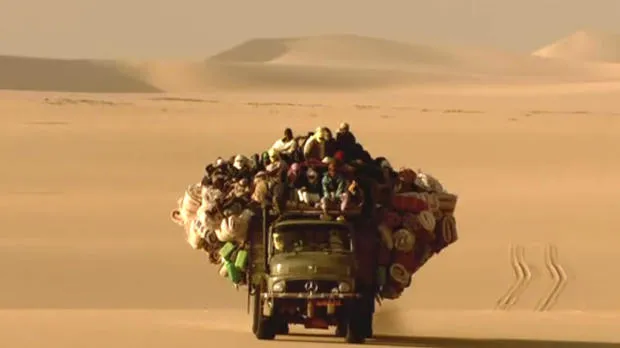
Credits for extracted images and screenshots of the trailer go to the IMDB site. Credits for the final banner with the author's signature (modified with the freely distributed Kolour Paint program) go to Pixabay.
Los créditos por las imágenes extraídas y capturas de pantalla del trailer van al sitio IMDB. Los créditos por el banner final con la firma del autor (modificado con el programa Kolour Paint de distribución libre y gratuita va a Pixabay.
